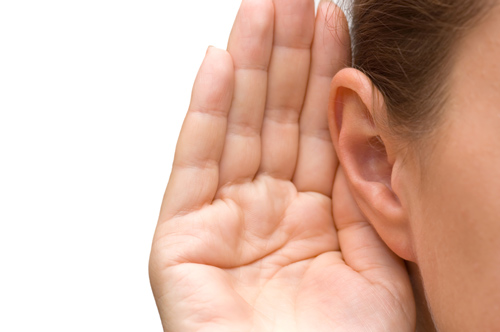But you can have hearing loss at any age. In fact, over 30% of people in their fifties suffer from hearing loss. And that escalates to 45% of people in their sixties, and 70% of people over 70. A whopping 80% of people over 85 experience hearing loss.
It is estimated that only about 20% of those with hearing problems get hearing aids, and only 8% of those people wear them on a regular basis. And it is sad to think that so many people with mild cognitive impairment or even dementia may have gotten to that stage a lot sooner because of it. Some people claim they are proactive at work, and yet fail to be proactive when it comes to their health. Dementia or even mild cognitive impairment such as forgetfulness, absentmindedness or trouble recalling names at will gets its start in the brain 20 or more years before any symptoms appear.
Studies show that hearing loss is more prevalent among people with mild cognitive impairment and dementia. But it was most likely not the dementia that caused the hearing loss, but rather the opposite. According to the book, Living with Mild Cognitive Impairment, by Anderson, Murphy, and Troyer, a study of people with MCI found that those with hearing loss progressed to dementia more quickly than did those with intact hearing.
It seems that the longer you wait between suffering hearing loss and getting your hearing aids, the more difficult it is to adjust to the amplification, because you are used to living in a quieter world, according to Debra Berndtson, an audiologist and associate director of the American-Speech-Language-Hearing Association, it takes time to get used to them.
People with untreated hearing loss as a group do poorer on tests of learning and memory compared to their peers who are not experiencing any loss in hearing. This is probably because hearing loss makes socializing more difficult and it has long been noted that socializing is good for the brain, improves memory, boosts happiness, reduces stress, and provides an increased sense of belonging and purpose. I wear hearing aids myself, and if the batteries die on me while I am at a social gathering or networking event, I find myself straining to hear what people are saying, and eventually withdrawing from the conversation altogether.
According to Jo Ann Jenkins, CEO of the American Association of Retired Persons, hearing loss is associated with an increased risk of dementia, falls and depression. It is also a serious contributing factor to social isolation and loneliness and has been linked to poorer job performance and lower salaries. And there is current research indicating a possible link between hearing loss and a COVID-19 diagnosis.
As we age, statistics tell us that with mild hearing loss we are twice as likely to develop Alzheimer’s, and with severe hearing loss, we are about five times more likely to develop the disease.
When I finally swallowed my pride and purchased hearing aids, it immediately forced me to turn down the blaring TV set, complain that most people talk too loudly, and maintain that flushing the toilet sounded like Niagara Falls. I thought everything was distorted, but I was suddenly hearing life as it really sounded. I never realized that dropping a coin on the floor even made a noise, let alone a safety pin.
My hearing aids did require minor adjustments. But we are in the age of technology, and audiologists can tweak them to the nth degree, even allowing for the fact that wearing masks during this pandemic reduces the volume of other people’s speech by 4 to 12 decibels.
What a joy to be able to hear what others are saying. You cannot remember names if you do not hear them properly in the first place. You cannot enjoy music as much when you cannot hear the words. And socially, it feels like you are self-isolating for life.
It is great not having the TV set blaring, and being able to hear the doorbell, the telephone, the kettle boiling, and the microwave announcing that your coffee is hot. It is also a lot more enjoyable being able to hear everyone’s jokes, including the punchlines.
And I am amazed at how everyone has stopped mumbling.
Successful People Read. A Lot.
What do Warren Buffett, Mark Zuckerberg, Elon Musk and Oprah Winfrey have in common? They all read - a LOT! If you want to be successful you need to read. We have over 30 short ebooks designed to get you booked up fast!


